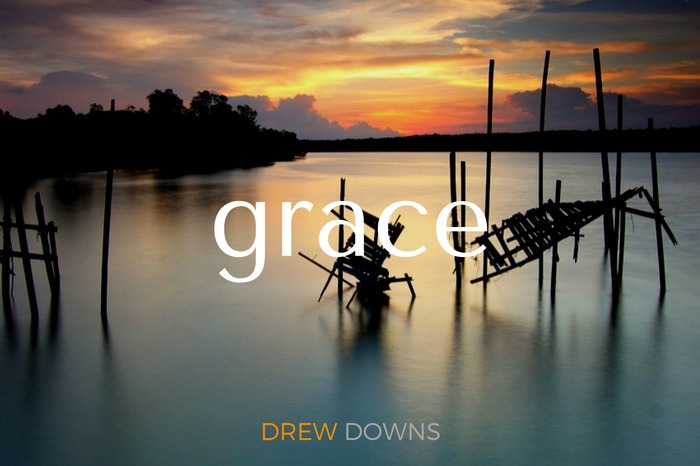I was at school the week of the funeral.
My internship supervisor told me about it when I came back. A senior in high school, 17, jumped off the Zilwaukee Bridge.
And his advice for me was to write that sermon for myself. Now.
The bridge is 125′ high, but looks much taller. It spans the Saginaw River.
Drivers on I-75 race across it, most top the 70 mph speed limit. Its 8 lanes and concrete banks make me claustrophobic.
The idea that a young man would be out, away from the safety of a car is cruel enough. But the falling, the wondering, imagining what I might be thinking as I fall terrifies me.
I didn’t get to hear what Darren preached, but I know it was about life and new life. About the terror of the moment. And that this young man, regardless of what we’re told, isn’t in hell.
Cause and Effect
What is it in the human condition which needs the world to fit neatly into little boxes?
One box for good and one for evil.
A box for the justified faithful and one for the outcast sinner.
The box for the things we do and a box for the outcomes.
That’s what you get, we say. You made your bed. Lay in that.
It isn’t biblical or traditional. As a people who believe in unjustified grace, undeserved blessing, and the shocking idea that God loves us in spite of our sickness, we should know this intuitively. This is the currency of the gospel.
That Jesus had to preach it over and over proves the apostles never learned. Nor do we.
Good things don’t happen because we’re good. Bad because we’re bad. The rain falls on all of us.
These boxes of division are human made. And even when Jesus seems to preach about boxes, he reminds his followers they don’t get a say about who is in which box. Or what the real boxes might be.
Sin, Hell, Death. All the bad stuff.
Jesus calls us to hate sin. And yet so many Christians have made a cottage industry out of that hate, it’s hard to see their passion for the gospel. A gospel which proclaims a God of love and a savior of liberation.
Always talking about sex. And the people who have it. Or those who struggle after they had it. Straight into those human buckets. Sin, corruption, deserved, exiled, cast the sucker out for their misdeeds.
That we place the victim of a completed suicide in a bucket of animosity is unconscionable at the root of it. What a high view of sin. What a low view of grace.
The fact that we’ve struggled to speak of suicide in the church is proof of the scandal of the gospel. That we have caused great pain proves our weakness. That we too easily condemn the suicidal, rather than grieve our failure to them, is our problem. Our sin.
Our whole deal is based on death, resurrection, and ascension. And we turn a kid’s death into points scored and proof of our own faith? That’s evil.
We struggle with blame.
As much as we struggle with suicide, it is even worse when we kill someone else.
I planned to write this post three weeks ago, long before a friend’s family member completed a murder/suicide. I can’t even imagine the pain the family is in. Not on the inside.
If I had listened to my advisor and written that sermon, I could have delivered it to them. Or been more prepared for that moment.
But here’s what might have been in it.
The convenience of our cause and effect boxes is that we think we can have some influence on the outcome. That if we do this, we’ll get that result.
This is the basic substance of our redemption theology. When we sin, we repent, and we receive absolution. So if we do something truly deplorable, all hope isn’t lost.
But here’s the problem with these systems. There are always those who can’t. They can’t speak for themselves. Or be in the place they need to be. Maybe their brain chemistry is wrong or they’re suffering through trauma.
If grace is undeserved, then we must deal with the exceptional.
The earliest followers struggled with this idea. There were a ton of good people who died without hearing about Jesus. What about them, eh?
Well, we made an exception. Because how could Abraham be in hell?
And babies? What about babies? They haven’t done anything yet! Oh, they get a pass, too.
And for centuries, we’ve made strict rules and handed out exemptions, like divine hall monitors. We play God.
Nobody’s SOL.
Not with God. Not if we believe in the God of love and the God found in Isaiah and Matthew. The God who was moved by humanity and promised to be with us, rather than destroy us, from the Deluge through today.
This is our choice, isn’t it?
To see ourselves as divine enforcers of a delicate framework. A contraption of buckets filling with rain water, stressing the joints as they fill, splashing out onto an aged wooden deck. A rube goldberg machine supported by a structure rotting over time. Every new rainfall bringing the collapse ever closer.
Or do we believe in a God who saves, even the worst, most broken among us? That we are not the summation of the worst choices we’ve made any more than we are responsible for the behavior of our parents. Or the horrible conditions we may be raised in.
A good God loves and cares for us all. A good God loves us even when we, in our condescension and confusion, are in need of compassion. When our evil blinds us to a God of redemption and a faith built on death and resurrection.
* * *
This is from a series on Choices. We have plenty more choices to make!

